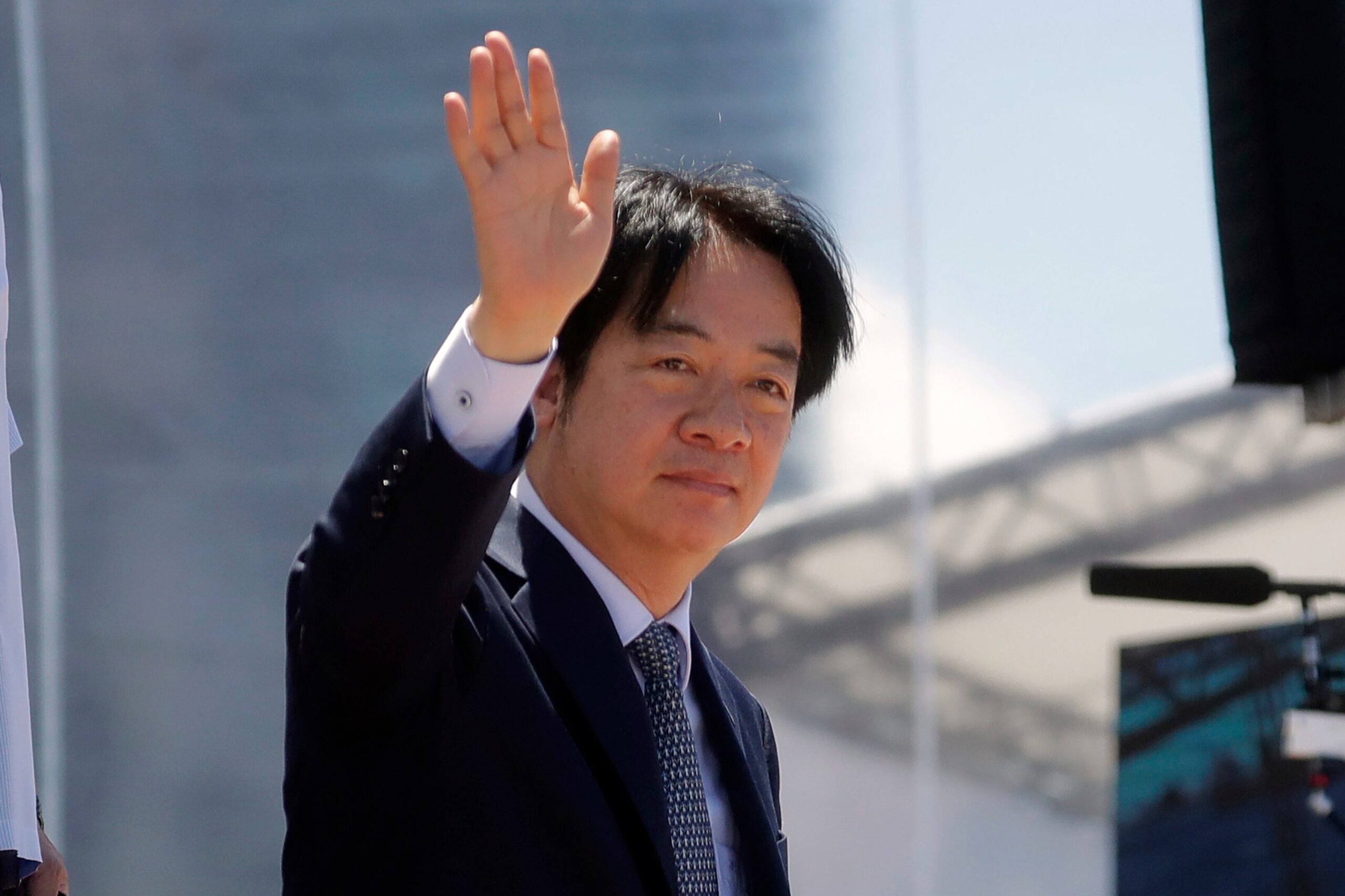WashingtonThe Associated Press has discovered that the Taiwanese government has canceled its president’s planned stopover in the United States en route to Latin America. This move has resulted in differing explanations for the cancellation.
In response to rumors that the Trump administration had blocked Taiwanese President Lai Ching-tein’s planned stopover in New York, Taipei stated that Lai had no intentions to travel abroad because of internal problems, such as natural disasters and tariff talks with the US. Dallas, Texas, was the other suggested destination on Lai’s itinerary.
Suggested Videos
For whatever reason, the cancellation is sure to give Beijing a significant diplomatic win, and experts are worried that the White House is creating a negative precedent for U.S.-China ties.
Although there were little details available regarding the administration’s decision, one person familiar with the talks told AP that Taipei had been urged by the United States to reschedule the transit so it would not pass through New York.
Trump’s seeming urgency to meet Chinese President Xi Jinping gave Beijing the idea to ask him not to let Lai travel through the United States, according to another person familiar with the talks.
Since they are now having delicate conversations with administration officials, both individuals spoke on condition of anonymity. The White House stated that it was unable to comment on this issue. State Department official Tammy Bruce stated that since Taiwan had not made any travel announcements for Lai, the matter was purely hypothetical.
“A lot of speculations and questions have been raised,” she told reporters on Tuesday. However, at this moment, I can state that it is hypothetical. No plans have been made.
Talks took place towards the end of last week.
According to one of the persons, it was evident by the end of last week that the Trump administration was talking about the probable transit by Lai, but it was unclear if the administration had taken any action to stop it. Additionally, it was uncertain whether the Trump administration would consent to Lai traveling through a city other than New York.
Under its own laws, the United States is required to provide military assistance to Taiwan, which broke away from China in 1949 amid a civil war. Beijing has pledged to annex the island, if necessary, by force, and claims it as sovereign territory off its southeast coast.
Jason Hsu, a former lawmaker in Taiwan’s Legislative Yuan and senior fellow at the Hudson Institute, stated that Taiwan usually confers with the US on transit and that it is unusual for Washington to disagree when such stopovers are allowed by the Taiwan Relations Act. According to Bruce, high-ranking Taiwanese officials’ transits, including those of presidents, are entirely in line with our established policy and procedure.
Karen Kuo, the presidential office spokesperson in Taipei, stated that Lai’s trip was not currently planned.
“The president currently has no plans for overseas visits in the near future, given the recent typhoon disaster recovery efforts in southern Taiwan, the reciprocal tariff measures between the United States and Taiwan, and regional developments,” Kuo stated.
regular action that frequently prompts Beijing to protest
An AP request for comment from the Chinese Embassy was not answered. However, Beijing has consistently objected to Taiwanese leaders traveling through the United States.
In 2024, Lai was chosen Taiwan’s president. He visited Hawaii and Guam during his first foreign trip in November of last year, where he was welcomed by American officials. According to the individual familiar with the talks, Beijing views Lai as an outlier because it believes he is more militant in his pursuit of Taiwan independence, even though such transits have been common under prior U.S. administrations and by previous Taiwanese presidents.
Although recent U.S. administrations have prohibited the use of Taiwan in negotiations with Beijing, Zack Cooper, senior scholar at the American Enterprise Institute, stated that “this decision raises questions about whether the Trump administration is reconsidering that approach.”
Furthermore, Jason Hsu, a former lawmaker from Taiwan’s KMT party and senior fellow at the Hudson Institute, stated that the Trump administration seems to be caving in to China’s red lines by blocking Lai’s stopover.
Trump is caving in to Beijing, according to a Tuesday statement by Democrats on the House Foreign Affairs Committee. The leading Democrat on the House Select Committee on the Strategic Competition Between the United States and the Chinese Communist Party, Rep. Raja Krishnamoorthi of Illinois, referred to it as just another instance of the Trump Administration giving in to pressure from China in an attempt to negotiate a trade agreement.
Both party presidents have previously let Taiwanese officials to travel through the United States, and this time around should be no exception,” he said in a statement.








